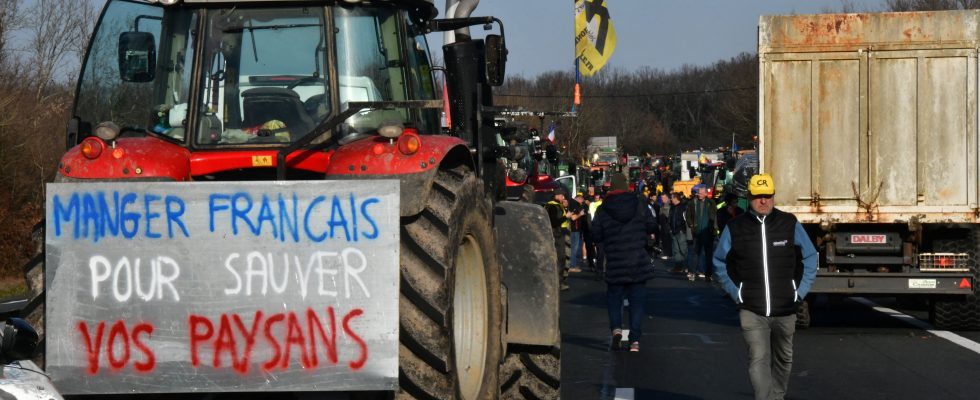Pay farmers more while promoting a change in model that is more respectful of the environment. The idea is a dream. With nearly 20% of France’s greenhouse gas emissions in 2021, according to figures from the High council for the climate, agriculture is one of the main levers of decarbonization in France. “The sector looks like a coin with two sides,” explains Xavier Poux, agronomist at the AScA environmental management design office. On the one hand, certain practices can cause negative effects with changes in land use. , such as CO2 and nitrogen emissions. On the other hand, farmers can generate numerous positive effects, thanks to the “environmental services” they provide. For example, by storing CO2 in the soil, or by preserving biodiversity. And on this aspect, the question of their remuneration becomes central.”
Encouraged by society and regulations to evolve their model towards agroecology, farmers already have several sources of financing in exchange for sustainable practices, thanks in particular to the Common Agricultural Policy (CAP) of the European Union. Since the new version of this plan in 2023, a certain number of aids are based on compliance with environmental criteria, such as the preservation of wetlands or the maintenance of certain meadows. However, these systems are accompanied by a large volume of procedures, and their effectiveness in transforming agriculture and protecting natural environments remains limited. “The regulatory approach consisting of prohibiting the transformation of meadows into plowed land, under penalty of a reduction in CAP subsidies, has not worked,” underlines Xavier Poux.
Carbon credits to better store CO2
Since then, other solutions have been developed, such as “payment for environmental services” (PES). This source of remuneration is based on the maintenance of ecosystems deemed beneficial to society, such as the preservation of water quality, the protection of the landscape or biodiversity. They allow, for example, an industrialist who uses a source of drinking water to pay operators for maintaining the good quality of this source. In the same way, a community can financially support farmers in order to conserve the landscape of an area because of its aesthetic or cultural value.
Since 2019, farmers can also issue carbon credits, which are then sold on the market. Associated with a low carbon label, a certification system set up by the State, this system should give a boost to good practices – reduction of fuel for machines, reduction in emissions linked to the use of fertilizers nitrogen, use of crops to better store CO2 in the soil, etc. -, while offering new prospects for remuneration. Two sectors are currently approved: livestock breeding and large crops. “The first benefit of this carbon accounting is to have more resilient operations. Being able to save on a certain number of costs allows, for example, to have a better economic return,” explains Samuel Vandaele, the president of France Carbon Agri, a company that supports farmers on these journeys.
Stricter European regulations
Although France is a pioneer, initiatives are still struggling to take off due to multiple obstacles. France Carbone Agri says it currently supports 3,000 farmers, a paltry figure compared to the 400,000 farms recorded in the region. “We are waiting for the method for viticulture, the pork and poultry industry, and arboriculture… It is currently being validated by the Ministry of Ecological Transition, but it takes time,” breathes Samuel Vandaele. Added to this is an unattractive carbon price, which is not always enough to offset the cost of implementing new practices. Presented as a solution to “put the farmer back at the center of the agroecological transition system”, carbon credits for agriculture seem to be “shuttering”, even within the Union. A recent agreement between the Commission and the European Parliament was reached on the subject. It aims to make the certificates of these credits more reliable. But it also risks toughening the conditions for issuing these credits by farmers.
“We are still only at the beginning of the subject,” assures Sébastien Windsor, the president of the Chambers of Agriculture, who is not however burying the system. “The question is how companies will be encouraged to buy our carbon credits,” he says. And while he recognizes that these revenues should play a marginal part in farmers’ finances, he sees complementarity with payments for environmental services and the regulatory aspect of environmental standards. “The PES will be able to promote a certain number of practices, and offer a broader solution than the purely normative one.” A way for professionals to regain control over their changes in usage… And to deconstruct the technocratic vision of the transition.
.
